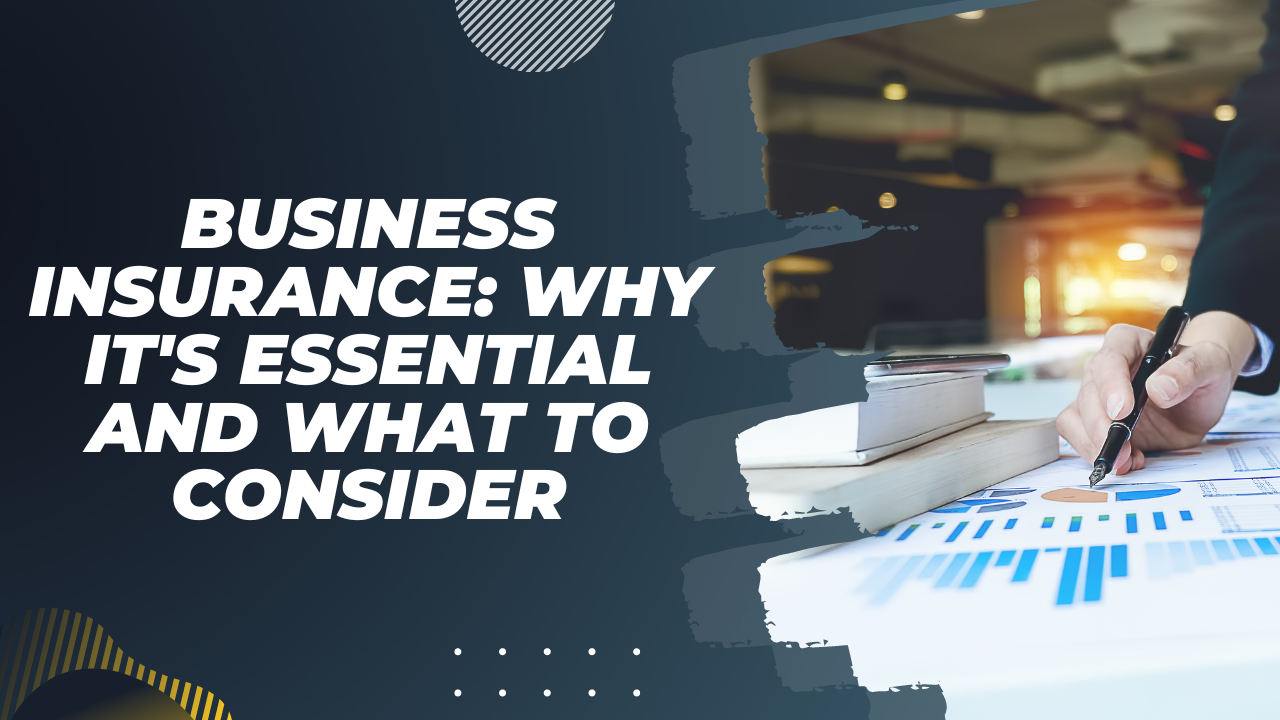Business insurance is essential because it protects your company from financial loss due to unexpected events such as natural disasters, accidents, theft, and lawsuits. It can help cover costs related to property damage, liability claims, and employee injuries. When selecting a policy, consider the risks your business faces, the coverage options available, and the insurance provider’s reputation and financial stability. Review your policy regularly to ensure it still meets your needs as your business evolves.
The Importance of Business Insurance
Business insurance is an essential component of any company’s risk management strategy. It serves as a safeguard against unforeseen events that can potentially lead to significant financial loss, such as property damage, liability claims, and lawsuits. Without insurance, a business may face financial ruin due to the high costs associated with these events. Therefore, having appropriate coverage in place is critical for protecting your business’s financial health and reputation.
Additionally, business insurance can help companies comply with legal requirements and contractual obligations, providing a level of security and peace of mind for business owners. It can also provide protection for employees by offering coverage for work-related injuries or illnesses.
Selecting the right insurance policy requires careful consideration of the risks faced by your business and the coverage options available. It’s essential to choose a reputable insurance provider with a history of financial stability and excellent customer service. Finally, reviewing and updating your policy regularly is crucial to ensure that your coverage aligns with your business’s evolving needs. By investing in business insurance, you can mitigate risk and protect your business’s long-term sustainability.
Types of Risks Covered by Business Insurance
Business insurance covers a range of risks that companies may face, including property damage, liability claims, professional errors and omissions, cybersecurity incidents, employee injuries, and business interruption. Property insurance protects physical assets such as buildings, equipment, and inventory from damage caused by natural disasters, theft, or fire. Liability insurance provides coverage if a company is found liable for harm to a third party. Professional liability insurance, also known as errors and omissions insurance, covers lawsuits alleging negligence, errors, or omissions related to professional services. Cyber insurance covers costs related to data breaches, cyberattacks, and other cybersecurity incidents. Workers’ compensation insurance covers employee injuries or illnesses that occur on the job. Business interruption insurance covers lost income and other expenses when a company is unable to operate. It’s important to note that each policy may have varying coverage, so it’s essential to carefully review policy documents to ensure that your business’s specific needs are met.
Coverage Options to Consider
When considering coverage options for business insurance, it’s important to evaluate the specific risks your company may face. Some coverage options to consider include general liability insurance, property insurance, professional liability insurance, cyber insurance, workers’ compensation insurance, business interruption insurance, product liability insurance, and commercial auto insurance. It’s crucial to identify your business’s unique needs and potential risks when selecting coverage options. An experienced insurance agent can help you determine the best coverage options for your business.
Choosing an Insurance Provider
Selecting the right insurance provider is crucial to ensuring that your business is adequately protected. To make an informed decision, consider factors such as the provider’s reputation, experience, coverage options, claims process, customer service, cost, financial stability, and licensing. You should research the provider’s reputation through reviews and ratings from other businesses and industry associations. Look for a provider with experience working with businesses in your industry or with similar risks. Ensure that the provider offers coverage options that meet your business’s specific needs, and understand their claims process, including turnaround times and their history of paying claims. Customer service is also important, and you should consider the availability of knowledgeable agents who can assist with questions or concerns. While cost is an important factor, don’t base your decision solely on price. Finally, ensure that the provider is licensed to sell insurance in your state and is financially stable to pay claims if necessary.
Reviewing and Updating Your Policy
It’s important to regularly review and update your business insurance policy to ensure that your coverage is adequate and up-to-date with your business’s changes. Start by conducting a risk assessment to identify any new risks or changes that may require additional coverage. You should also review your policy limits to ensure that they are still sufficient to cover potential losses, and check for any exclusions that could be significant risks for your business. Make sure you understand your deductibles and consider adjusting them if your business’s financial situation has changed. It’s also essential to keep your policy information up to date, including your business’s address, number of employees, and revenue. Working with an experienced insurance agent can be helpful in reviewing and updating your policy to ensure that your business has the coverage it needs. By regularly reviewing and updating your policy, you can have peace of mind knowing that your business is protected.
Also Read:
- Running Out of Funds? Apply for Business Loans at Lower Interest Rates
- Health Insurance vs Term Insurance: What is the difference?
- What is a term insurance policy and why do you need one?
- 10 Benefits A Good Payment Gateway Can Bring to Your Business




